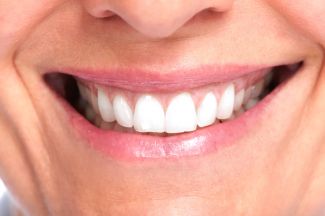Common Dental Health Issues As You Age
Bonnie Coberly

Common Dental Health Issues As You Age
Entering your golden years doesn’t give you permission to forget about your teeth and gums. In fact, senior citizens are faced with many unique oral health concerns, and failure to maintain good dental health could lead to tooth loss, cavities and gum disease, to name a few.
Luckily, older adults can stop many dental health problems in their tracks with proper oral hygiene habits at home. Here are three common dental health problems older people face and how to avoid them:
1. Gum Disease
Gum disease is an infection of the gum tissues that surround and support your teeth. It is very prevalent among older adults, with more than 70 percent of Americans 65 and older are having some form of the disease, according to the Centers for Disease Control and Prevention (CDC). Without proper treatment, gum disease can destroy the surrounding tissues, eventually causing bone and tooth loss. If you have any of the following signs of gum disease, talk to your dentist right away:
· Gums that are red, swollen and tender
· Gums that bleed easily
· Changes in your bite or in the fit of dentures
· Gums that recede from the teeth
· Persistent bad breath
· Natural teeth that are loose
Gum disease progresses slowly and symptoms are not always present early. For this reason, many adults have gum disease and don’t even know it. That is why it is especially important for seniors to visit their dentist for regular checkups. Caught early, gum disease is very treatable and can often be reversed before loss of natural teeth occurs.
2. Cavities
As it turns out, cavities aren’t just for kids, and reaching your golden years makes you more prone to decay. Tooth decay is one of the most common chronic diseases among the aging population, with approximately 1 in 5 adults aged 65 and over having untreated tooth decay.
There are a number of reasons seniors are more susceptible to cavities. These include increased dryness in the mouth; poor oral hygiene habits caused by loss of manual dexterity; and receding gums and exposed root surfaces that naturally occur with age. The symptoms for a cavity often go unnoticed until the decay is larger. These include tooth pain and sensitivity, pain when eating hot or cold foods, visible pits in the tooth, and abnormal staining on the tooth’s surface. To reduce your risk for cavities as you age, follow a diligent oral hygiene routine that includes brushing twice a day for a full two minutes, using fluoride toothpaste, flossing daily, and eating a healthy, low-sugar diet. Notify your doctor as soon as you experience signs of a cavity to prevent the decay from spreading.
3. Dry Mouth
Saliva plays a crucial role in preventing tooth decay. It naturally rinses your mouth of debris and acid that attack the teeth and cause decay. It also contains calcium and phosphate, which help prevent the demineralization of tooth enamel. With age, however, many seniors experience dry mouth and a decrease in saliva production due to smoking, a problem with the salivary gland, or medications. Without adequate saliva flow, the acids produced by plaque can't be neutralized, making teeth very susceptible to cavities and gum disease. Talk to your dentist if you suffer from dry mouth. Drinking plenty of water, chewing sugar-free gum, avoiding coffee and alcohol, and modifying your medications with approval from your physician are ways to relieve dry mouth symptoms.
Oral Health Tips for Older Adults
Getting older may bring various oral health challenges with it, but that doesn’t mean issues with your teeth are inevitable. The good news is, many of these common dental problems can be avoided with proper care and attention. Here are some tips for maintaining and improving your oral health as you get older.
· Brush twice daily with a soft-bristled toothbrush and fluoride toothpaste to remove plaque that cause decay and gum disease.
· Floss at least once a day to clean the hard-to-reach surfaces between the teeth and along the gum line.
· Maintain dental appliances, including dentures and dental bridges, by cleaning them daily.
· Eat a well-balanced diet that promotes strong teeth and gums, and limit foods high in sugar.
· Quit smoking to reduce your risk for cancer, gum disease, tooth decay and tooth loss.
· If you have mobility or dexterity issues, talk to your dentist about available options and tools to make oral hygiene easier.
· Visit your dentist twice a year for routine cleanings and exams.
· Notify your dentist immediately if you notice changes in the condition of your mouth, teeth and gums.
As you get older, it pays to be wiser about your oral heath. Pay attention to your teeth and gums, make improvements to your oral hygiene habits, and maintain regular visits with your dentist for routine exams. All of these simple steps can help you avoid common oral health problems and keep your healthy, natural teeth for a lifetime.
Author Bio:
Bonnie Coberly is a graduate from the Institute for Integrative Nutrition at Columbia.

